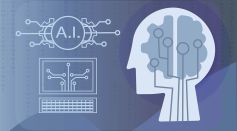Tags: Brain
Brain Parasite in Rodents Which Is Also Present in Humans, May Allegedly Evolve Resulting to Zombification [Study]
Neural Network From Brain to Eyes Evolves Much Earlier, Fish Genetics Study Shows
Brain Molecule Playing Key Role in Neurodevelopmental Disorders
![76 Genes Affect Variation in Brain and Facial Structure But Not Cognitive Ability, Debunking Pseudoscience Beliefs [STUDY]](https://d.sciencetimes.com/en/full/32875/76-genes-affect-variation-brain-facial-structure-not-cognitive-ability-debunking-pseudoscience.jpg?w=237&h=131&f=22331125fa8e3165b5643bb9f75b29e5)
Do Facial Features Show If One is Smart? Scientists Say No After Studying 76 Genes
![Science Times - Sugary Drinks May Affect Your Child’s Memory Later in Life [Study]](https://d.sciencetimes.com/en/full/32803/science-times-sugary-drinks-may-affect-your-childs-memory-later-life-study.jpg?w=237&h=131&f=0ee8c6d43e1cb04f4c4d85d8fd51ba68)
Sugary Drinks May Affect Your Child’s Memory Later in Life

Humans Love for Music: Mystery Solved Through Brain Scans

Artificial Intelligence Can Map How a Brain's Complex Network Works to Understand Sentences

Loneliness and Wisdom are Linked on Neural Levels According to Research

Afternoon Nap is Associated With Better Mental Agility, Here's Why

Brain Stimulation Could Boost a Person's Courage and Remove Fear
Neuroscience Explains What Happens to the Brain When One is in Love

Why Do We See Colors Differently?
Experts Explore the Part of the Brain That Responds To Beauty
Learning to Drive and Navigate Significantly Changes the Brain

12-Second Tactic: How to Train Your Brain To Be More Positive

Therapeutic Wireless Rechargeable Tiny Brain Implant Can Be Controlled Using Smartphone
Researchers Reveal Why Some People Take More Risks

Believing is Seeing: Discovering the Link Between What We Expect to See and What Our Brain Tells Us
Childhood Emotional Neglect Leaves Intergenerational Effects on Brain
Japanese Researchers Found Out How the Brain Paralyzes Muscles While in REM Sleep
Most Popular

As 3I/ATLAS Meets the Sun, Astronomers Fear a Cosmic Twist Awaits

Supermoon 2025: November 5 Delivers 14% Bigger, 30% Brighter Lunar Show

Hellfire Missile Video Reveals MQ-9 Reapers Being Used for Aerial Combat

3I/ATLAS: The Truth Behind the Mysterious Interstellar Object Now Targeted by NASA and UN Teams





